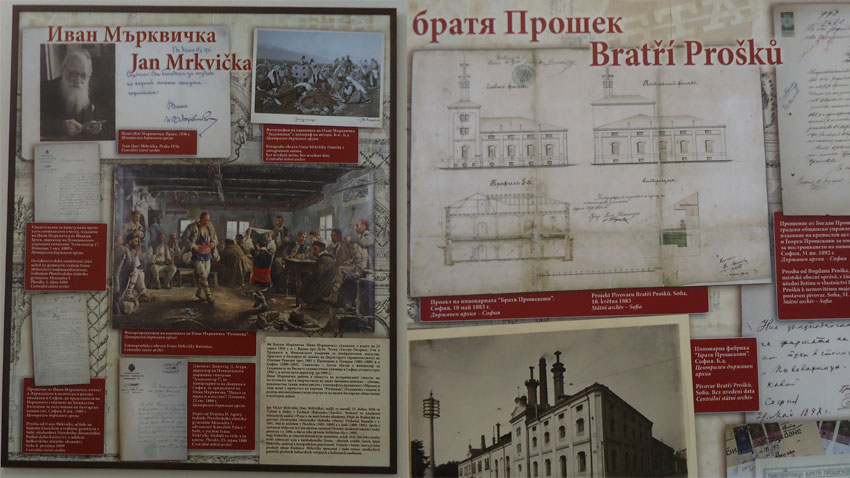Czech people have greatly contributed to the preservation of European values in modern Bulgaria. Immediately after the Liberation from Ottoman rule, a number of enterprising specialists and enthusiasts arrived to this country to help its rebirth.
The Bulgarian Czechs, as we call them today with gratitude, rank among the builders of modern Bulgaria. After 1878, the young state needed help to build its institutions, take care of the spiritual growth of the Bulgarians who recently gained their freedom, and to create modern cities. That is how from Czechia to Bulgaria arrived a number of engineers, architects, builders, craftsmen, brewers, but also prominent intellectuals - historians, artists, musicians.

“These highly-educated people brought here their knowledge and professional expertise," Darina Biliarska, an expert at the Central State Archives, says. "Of course, they are also bearers of many human qualities that were introduced here. But most of all, these Czechs brought science.”
A documentary exhibition dedicated to the Bulgarian Czechs, has been put on display in the Archives State Agency on "Moskovska" 5 Street. The twentysix panels with photographs and documents presenting some of the most deserving names have arrived to Sofia after a great success in the National Library in Prague and will be on display until June 2nd. But who are these persons who contributed to the rise of our newly-liberated homeland?
“For example, let's start with the Proshek brothers - Georgi and Bogdan, who created one of the first modern brewing factories in Bulgaria,” Darina Biliarska says. “They also built many impressive architectural sites in Sofia, including the Lion’s Bridge and the Eagle’s Bridge. Another Czech architect Antonin Kolar is the author of the project of the monument of Vasil Levski and the first master plan of the capital city. Almost all significant buildings downtown Sofia are linked Czech names. Not to mention Plovdiv, where the city’s plan and many of the city's iconic buildings were built by Czech Joseph Schniter, or in Varna where the Sea Garden was designed by another Czech - Anton Novak.”

However, the Bulgarian government invited not only architects but also prominent scholars and artists to lay the spiritual foundations of the new state. That is how historian Konstantin Irechek, the brothers archaeologists Karel and Herman Skorpil, artists Ivan Mrkvička and Jaroslav Vesin, violoncellist and composer Ivan Cibulka, film director Josef Šmaha ...
Many of these Czechs remained to live and work in their second homeland and many were buried here. Because of their dedication and love towards Bulgaria, they were granted citizenship;many received high orders and others become honorary members of diverse professional communities. Today Bulgarian streets, squares and schools bear their names. We see the names in literary works; we pass by the buildings and the monuments that they left us. And when we look at the deficiencies of our social and political life today, we still hear the words of great Konstantin Irechek: "The able ones led by the ignorant, do the impossible for the ungrateful. And we have done so much with so little that we have already become experts in doing everything out of nothing. "
English: Alexander Markov
Photos from the exhibition: Diana TsankovaEuropean Days of Artistic Crafts are starting today in Bulgaria's Antonovo . The motto of this year's edition is "The Golden Thread", which is why it will begin with workshops on wool felting. Every day until the end of the week, residents and..
Writer Kalin Terziyski will present his collection of short stories "Is Anyone There to Love You?" at the Bulgarian Cultural Institute in Berlin on April 1. The book, translated into German by Elvira Bormann, tells of life in a city full of mystery,..
On Theater Day - March 27, the Union of Artists in Bulgaria traditionally presented the National Awards for Performing Arts IKAR. The award for outstanding contribution to Bulgarian theatre went to actor Yavor Milushev and was..

+359 2 9336 661
